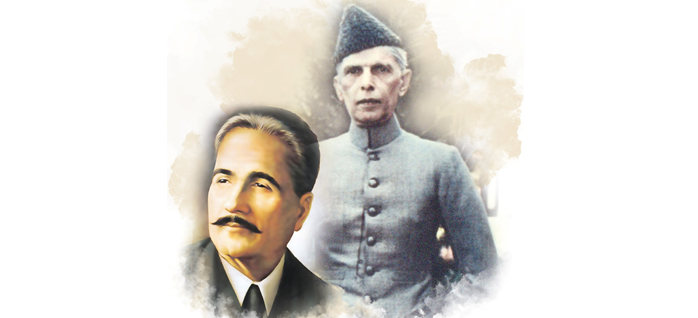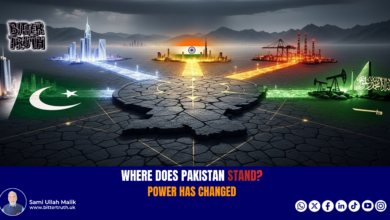Many young people often ask, “Why was Pakistan created?” This question has resurfaced, especially after the publication of the controversial book by Jaswant Singh, a former Indian foreign minister and leader of the BJP, titled Jinnah: India-Partition-Independence. The book suggests that Quaid-e-Azam Muhammad Ali Jinnah was in favour of a united India and that Pakistan came into existence due to the obstinacy of Pandit Jawaharlal Nehru and Vallabhbhai Patel. Today, I will attempt to briefly answer these questions.
Those unfamiliar with the thoughts and nature of the time often question the creation of Pakistan. Especially today, when many young minds are more captivated by Indian songs, sensational movies, and alluring visuals, rather than the Islamic spirit that once stirred the hearts of their predecessors. They do not realize the tremendous struggles faced by the leadership of Pakistan in bringing a new nation onto the world map. Muslims in India were shackled in the chains of slavery, bereft of intellectual, physical, economic, and social awareness. The influence of Hindu and British powers overshadowed them, preventing Muslims from achieving a position where they could develop their creative abilities and foster collective human progress. The entire life force and source of economic strength was in the hands of Hindu traders, with Muslims reliant on them.
During the British rule, particularly under Lord Campbell, job advertisements would explicitly state that Muslims need not apply. Hindu society, based on a caste system, regarded Muslims as inferior, akin to the Shudras (the lowest caste). Muslims lived in poverty, with no hope in sight for changing the course of their circumstances or the tide of history. It was Allama Iqbal, the thinker of Pakistan and the philosopher of the East, who introduced a new thought that ignited the imagination. Through his constructive philosophy, particularly in his historic address in Allahabad, he illuminated a new path for Muslims, urging them to break free from the shackles of despair and rise to action to dismantle the chains of slavery.
At that time, Quaid-e-Azam, who had already established a prominent position among the leading Congress leaders in India and was also a staunch supporter of the Muslim League, understood the demands of the present and had a clear vision for the future. He resolved to lead Muslims out of the darkness into the light. Quaid-e-Azam and his colleagues worked tirelessly, guided by the teachings of the Quran. On one occasion, Quaid-e-Azam stated, “If we continue to derive guidance from the Holy Quran, victory will ultimately be ours.” He further emphasized that “our salvation lies in following the path laid down by our beloved Prophet Muhammad (PBUH), as revealed to us by the Almighty.”
These were the two guiding principles that motivated Quaid-e-Azam to present the Muslim League’s cause with renewed vigour, inspiring enthusiasm among Muslims. From 1937 to 1945, a revolutionary transformation occurred in India, leading to the overwhelming victory of Muslims in the 1944 elections across all regions of India. Quaid-e-Azam was a remarkable leader, serving as the president of the All-India Muslim League, and his words were not only heard but wholeheartedly acted upon by the people. He championed the idea of Muslim nationhood, asserting that all Muslims constituted a single nation, and that this nation deserved a separate country. He famously stated, “No matter how nationhood is defined, Muslims, by every definition, are a separate nation,” making it clear that the concept of a united India was utterly unacceptable as it would lead Muslims to disaster. Therefore, with his foresight, Quaid-e-Azam deemed the partition of India essential for the betterment of Muslims, ensuring they could have their own nation free from caste discrimination, with plans for their own independent economic development. A place where Muslims could nurture and protect their culture and civilization, where brotherhood, equality, and a prosperous society could flourish.
Quaid-e-Azam declared, “We believe in one God, one Prophet, and one Ummah.” Thus, he envisioned a society based on the principles of freedom, justice, equality, brotherhood, love, and mutual respect, where there would be a distinction between master and servant, where humanity would be equal regardless of race or colour, and where Muslims could carve out a new path on God’s earth. He had firmly established in his mind the idea of a separate homeland for Indian Muslims, where they could live with justice and freedom, and protect their lives and property.
He stated, “I am fighting for Pakistan because it is the practical solution to our problems. My colleagues and I have seen firsthand, while working within the Congress, that the Congress leadership is not serious about addressing Muslim issues. Their focus is on promoting Hinduism and Hindu culture. Therefore, it is neither beneficial nor a means of salvation for us to remain with them any longer.” Quaid-e-Azam openly declared that both the Hindus and the British were united in their opposition to Muslims, devising plans to harm them. Hence, Muslims could no longer endure further subjugation. The plight of Bengali Muslims was so dire that since the East India Company took control of Bengal in 1753, the future of Muslims was plunged into peril, leaving them impoverished and destitute. There was a time when Bengali Muslims ruled this region, which was then the most civilized part of India. However, since the East India Company took over, these foreigners forced Muslims into a life of disgrace. Quaid-e-Azam warned, “No matter how united the Hindus and the British are, they will never succeed in destroying our spirit. The Two-Nation Theory is an undeniable truth, and we consider freedom our ultimate goal.”
You said: “One of the key principles of the All-India Muslim League is to maintain the separate identity of Indian Muslims as a distinct nation.” Addressing the Muslims of India, he further stated, “Only those nations are deemed worthy of freedom that have successfully pursued their struggle for independence to its final destination.”
In his historic speech on 14th August 1948, Quaid-e-Azam remarked, “Remember, the creation of Pakistan is an event unparalleled in history. It is the world’s largest Islamic state, and if we work with honesty, diligence, and selflessness, it will continue to progress year after year. I have complete faith and confidence in my people that they will adhere to the revival of Islam and follow its traditions in every aspect.”
Indeed, Quaid-e-Azam’s speech seemed to echo the essence of Allama Iqbal’s verse:
عقابی روح جب بیدار ہوتی ہے جوانوں میں
نظر آتی ہے ان کو اپنی منزل آسمانوں میں
“When the eagle’s spirit awakens in the youth,
They see their goal beyond the skies.”
Quaid-e-Azam emphasized that our desire is for our nation to achieve complete growth in spiritual, moral, cultural, economic, social, and societal life. Therefore, as a nation, we achieved a country, and we must remain united as a nation. If India had not been partitioned, today we would have been a minority, subjugated, and helpless in the face of Hindu oppression.”
In another instance, Quaid-e-Azam further stated, “The solution to India’s most complex issue was the creation of Pakistan, and now Pakistan is an undeniable reality, as the concept of a united India was never feasible. A united India would have surely led us to disaster. Now, you must respond to the enemy’s conspiracies by building and strengthening our state on solid foundations. We are now the masters of our own country, managing our own affairs, and all successes are achieved through personal effort and hard work.”
Dear readers! Now you can judge for yourselves whether Quaid-e-Azam and Allama Iqbal wanted to remain in a united India or if a separate state for Muslims was their ultimate goal. The Hindus are still unwilling to acknowledge the wisdom of Quaid-e-Azam and how he successfully fought the case for Pakistan, which eventually led to the establishment of a separate state for Muslims.






